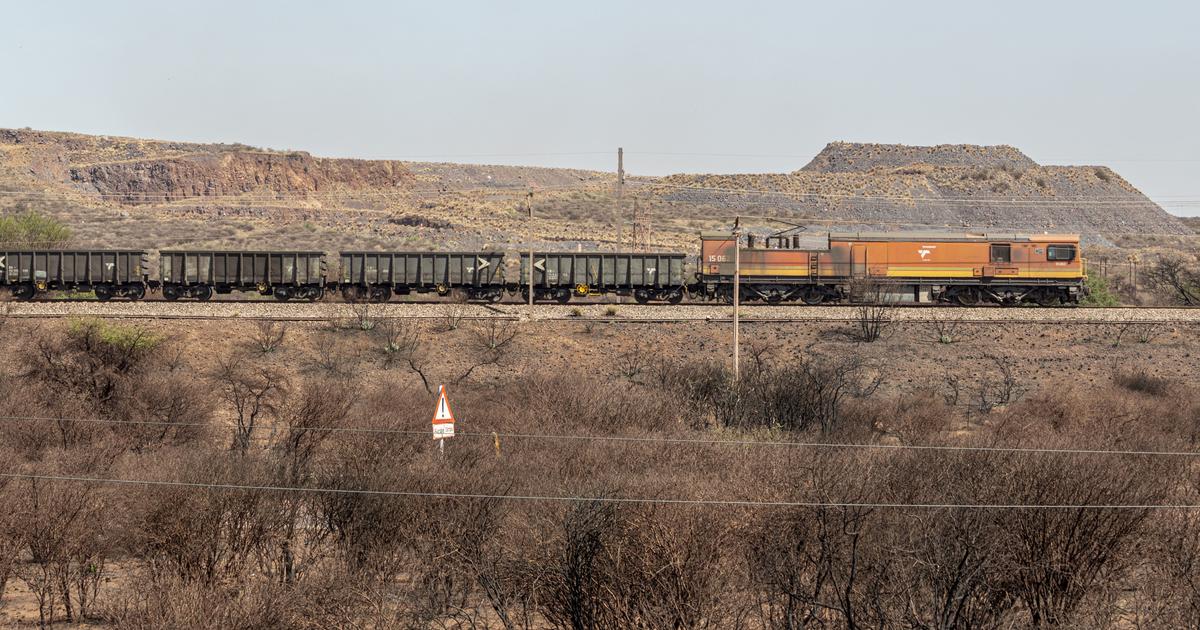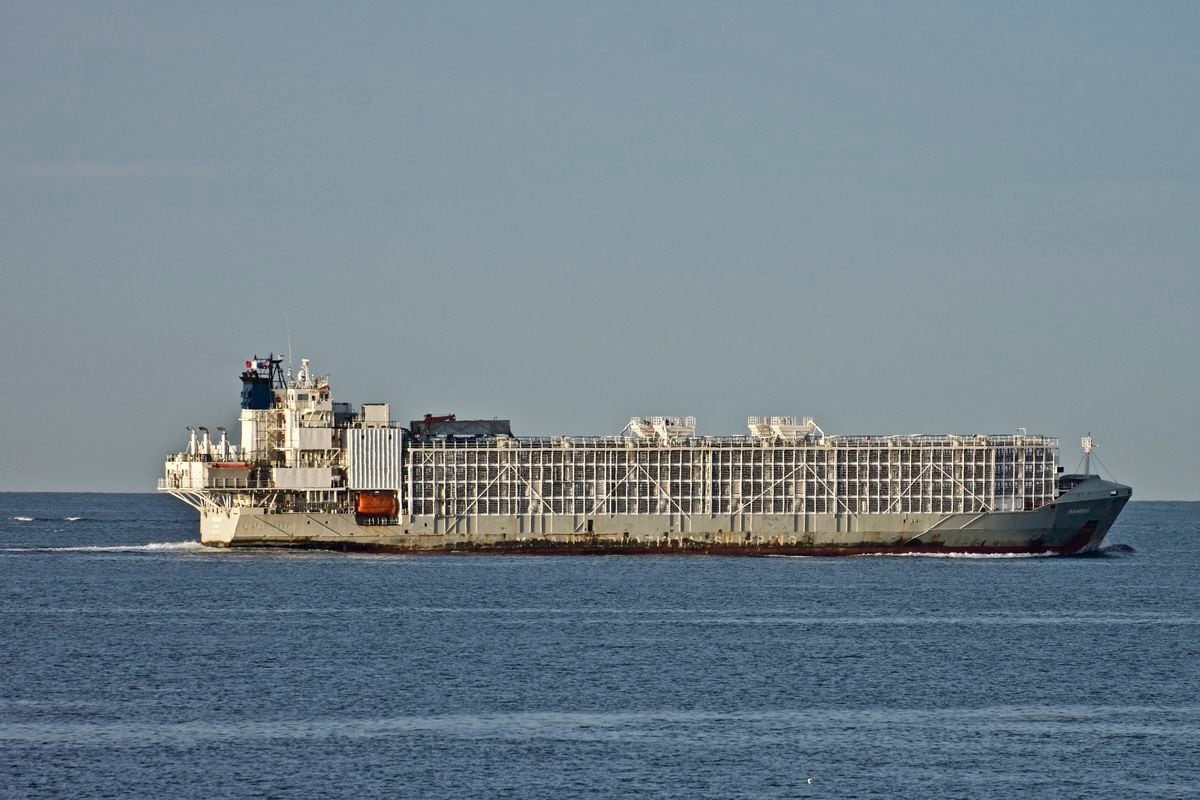Egyptian policemen stand guard at the site of the Qalyubia railway accident, north of Cairo, on April 18. MOHAMED ABD EL GHANY / Reuters
When at the end of March two trains collided in the Egyptian governorate of Sohag, in the south of the country, in an accident that left 20 dead and some 200 injured, the response of the Prosecutor's Office was to point out human errors as the cause.
He ordered the arrest of several employees of the Egyptian Railways Authority and claimed that, according to the preliminary investigation, the negligence and drug abuse of the workers had been the main causes of the tragedy.
On April 14, another train traveling through Sharqia governorate in the Nile Delta derailed, injuring 15 more people. The Prosecutor's Office attributed it, again, to individual rulings. Just four days later, another derailment, this time in Qalyubia governorate, north of Cairo, left 23 dead and 139 injured. The public ministry once again threw out the manual, ordered the arrest of 23 railway workers and indicated that their negligence had been the cause of what happened, according to a statement.
In Egypt, train accidents are common, but most of them receive little attention and are tried to be minimized.
This time, however, the succession of three disasters in a single month, with more than 40 deaths and 350 injuries in total, has clearly exposed the structural problems that plague the railway system, which has caused public outrage towards those responsible. and its management.
“Accidents have been going on for a long time and will continue to occur.
The problem is structural, the infrastructure is very old and there is no investment ”, considers the Egyptian political analyst Maged Mandour.
More information
At least 350 dead in the biggest railway tragedy in Egypt's history
At least 11 dead and about 100 injured in train accident in Egypt
Since 2005, and with the exception of the period between 2011 and 2013, more than 1,000 train accidents have been registered each year in Egypt, reaching more than 2,000 in 2018, according to the state statistics agency (CAPMAS).
In 2019, the last for which the data has been published, they were 1,863 and particularly severe: 42.4 deaths for every 100 injured.
Over a million passengers a day pass through the Egyptian railway network, mostly from the lower classes, so that repeated train accidents, particularly the most serious ones, are a sensitive issue, and the authorities are aware of this.
In 2019, when a fatal accident occurred at the Ramses station in Cairo, the country's main and in the heart of the capital, there were calls to protest and a campaign of arrests.
That the causes of rail accidents run deeper than the alleged negligence of their workers is in the public domain. Since at least 2017, and according to CAPMAS, more than 80% have been collisions in one of the 1,300 train crossings in the country, handled for a long time - and hundreds even now - with an old manual system. General Kamel Al Wazir, head of the Ministry of Transport, assured Parliament in January that 732 have been modernized and that about 400 are in the process.
Another problematic element is its antiquated signaling and communication system, which encourages human error and which, judging by El Wazir's statements in January, has not yet been modernized.
In addition, the fleet of locomotives and wagons is also old, something that the authorities want to reverse by importing new ones and, above all, developing the local industry, a bet that is not clear how long it will take.
In this context, the decision of the authorities to give priority to the punctuality of the trains has aggravated the situation, since it has ordered to deactivate the automatic control in some sections so that the convoys circulate faster.
The wrecked railways in Sohag and Sharqia, for example, had their controls disabled.
Likewise, the poor working conditions of railway employees, in particular their long working hours, combined with limited training and low wages, are pointed out as one of the reasons behind the increase in the dangerousness of the network. In 2018, the Administrative Fiscal Authority issued a report in which it pointed out that there is a deficit of operators of around 60%.
To reverse this situation, resources are needed, but, above all, the critics consider political will. In this sense, the austerity of the Egyptian government in recent years has reduced investments in infrastructure development, according to local media
Mada Masr
. And although after the Sohag accident, El Wazir assured that it will allocate almost 12,000 million euros until 2024 to renew the railway network, the item includes projects carried out since 2014 and has not changed recently. Despite this, the Government plans to invest billions of euros in railway macro-projects, such as a monorail that connects with the new capital of the country and high-speed train lines, which have been criticized for being superfluous and for serving a very small public .
“It is a political question, not a question of resources. There are massive investments in infrastructure, in roads and bridges, in the monorail, in the new high-speed rail line. But it is not being invested to serve the mass of the people ”, criticizes Mandour.

/cloudfront-eu-central-1.images.arcpublishing.com/prisa/6JKK67MB4MI2UULUHQ3QWP3O5Y.jpg)






